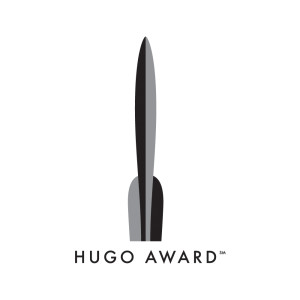 With the Hugo Award voting coming to a close at the end of July, I find my attention being pulled towards the historical data surrounding the Hugo. The Hugo Award started in 1953 at the 11th WorldCon in Philadelphia. Originally named the Annual Science Fiction Achievement Award, the award’s unofficial name, the Hugo, became official in 1992.
With the Hugo Award voting coming to a close at the end of July, I find my attention being pulled towards the historical data surrounding the Hugo. The Hugo Award started in 1953 at the 11th WorldCon in Philadelphia. Originally named the Annual Science Fiction Achievement Award, the award’s unofficial name, the Hugo, became official in 1992.
The award, as you probably already know, is named after the founder of Amazing Stories, Hugo Gernsback. Many in the industry consider the Hugo one of the most prestigious awards presented annually. Like the film industry’s Oscar, the Hugo is awarded across a wide range of categories. Every Academy Awards ceremony builds towards the presentation of the motion picture of the year award. The category carries with it weight and prestige. I consider the Hugo Award for Best Novel to be the virtual equivalent in the science fiction community.
With that in mind, and an inherent compulsion for numbers and statistics, I pulled out my shovel and pickaxe and began to mine the collected databases of the world for a few tidbits to satisfy my inner geek. What follows are a few statistics regarding the history of the Hugo Award for Best Novel, that may interest only me. (Statistics include retro Hugos.)
Begin parade of trivia:
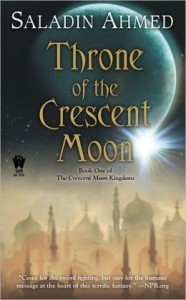 Since the first Hugo (for Best Novel) was awarded in 1953, 64 awards have been handed out to 42 different authors. That is to say 65% of the award winners are repeat offenders. Looking at this year’s candidates Lois McMaster Bujold and Kim Stanley Robinson have both won previous awards. Using my fuzzy, late-night, logic/math, I could say it is 65% likely one of them will win the award this year (2013).
Since the first Hugo (for Best Novel) was awarded in 1953, 64 awards have been handed out to 42 different authors. That is to say 65% of the award winners are repeat offenders. Looking at this year’s candidates Lois McMaster Bujold and Kim Stanley Robinson have both won previous awards. Using my fuzzy, late-night, logic/math, I could say it is 65% likely one of them will win the award this year (2013).
Of the 42 different winning authors, only 12 of them had a single nomination. That is only a 29% chance that a first time nominee will win the award. (Yes, I chose to ignore those that won the award in their first of multiple nominations.) This year only Saladin Ahmed celebrates a first appearance on the nomination list.
Top Ten List of Authors with Multiple Nominations
- Robert A. Heinlein (11 nominations)
- Lois McMaster Bujold (10)
- Robert Silverberg, Robert J. Sawyer (9 each)
- Larry Niven (8) (note 4 were as co-author with Jerry Pournelle)
- Poul Anderson, David Brin (7 each)
- Orson Scott Card, Isaac Asimov (6 each)
- Vernor Vinge, Robert Charles Wilson, Kim Stanley Robinson, Greg Bear, Connie Willis, Clifford D. Simak, China Mieville, C. J. Cherryh, Arthur C. Clarke (5 each)
- William Gibson, Roger Zelazny, John Varley, John Scalzi, Jerry Pournelle (as co-author with Larry Niven), George R.R. Martin, Frederik Pohl, Dan Simmons, Anne McCaffrey (4 each)
- Ursula K. Le Guin, Samuel R. Delany, Neal Stephenson, Mira Grant, Michael Swanwick, Kurt Vonnegut, Ken MacLeod, John Brunner, Joe Haldeman, Ian McDonald, Gene Wolfe, Fritz Leiber, Frank Herbert, Bruce Sterling (3 each)
- Theodore Sturgeon, Piers Anthony, Philip K. Dick, Neil Gaiman, Nancy Kress, Marion Zimmer Bradley, Joan D. Vinge, J. K. Rowling, Harry Harrison, Hal Clement, Gordon R. Dickson, Edward E. Smith, David Gerrold, C. S. Lewis, Algis Budrys, Alfred Bester (2 each)
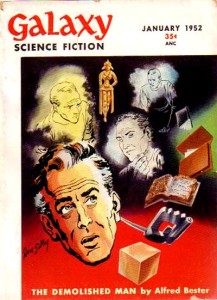
Top Fifteen Most Hugo Awards for Best Novel (Only fifteen authors have won multiple awards.)
- Robert A. Heinlein (5 awards)
- Lois McMaster Bujold (4)
- Vernor Vinge (3)
- Isaac Asimov (3)
- Connie Willis (3)
- Ursula K. Le Guin (2)
- Roger Zelazny (2)
- Orson Scott Card (2)
- Neil Gaiman (2)
- Kim Stanley Robinson (2)
- Joe Haldeman (2)
- Fritz Leiber (2)
- David Brin (2)
- C. J. Cherryh (2)
- Arthur C. Clarke (2)
Page counts can be a tricky proposition, but having heard how much longer books have gotten over the years, I decided to look at the statistics. In some cases page count estimates could not be located. In those instances 0 was entered for the page count. Despite the statistical anomalies, you can see a trend upwards.
- In 1946 the nominees averaged 266 pages each.
- In 1966 the nominees averaged 335 pages each.
- In 1986 the nominees averaged 353 pages each.
- In 2006 the nominees averaged 467 pages each.
- In 2012 the nominees averaged 586 pages each.
- In 2013 the nominees average 477 pages each.
The longest streak of consecutive nominations is held by Charles Stross with six. Charles was nominated every year from 2004 to 2009.
Robert A. Heinlein holds the record for longest stretch of excellence. His first nomination was in 1951 and his final nomination in 1985. A span of 34 years.
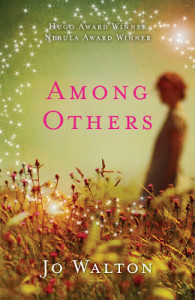 It is also worth noting that Poul Anderson received his first nomination in 1959 and his final nomination in 1990. A span of five decades. (31 years)
It is also worth noting that Poul Anderson received his first nomination in 1959 and his final nomination in 1990. A span of five decades. (31 years)
Robert Silverberg is the only author to have more than one novel nominated during the same year (1973).
Of the 64 awards 17 have been won by women (27%). That number represents 10 different women. Ursula K. Le Guin won the first in 1970. Jo Walton won the latest in 2012.
Out of approximately 305 nominations (the early years records did not list non-winning nominees) 55 women have been nominated. The first was Marion Zimmer Bradley in 1963. In 1992 and 2011 four of the five nominees were women.
Top Ten Most Hugo Awards for Best Novel by Publisher (Some publisher name changes have been incorporated.)
- Tor Books (7 awards)
- Analog (Astounding) (6)
- Galaxy Science Fiction (6)
- Ballantine Books (4)
- Bantam Spectra (4)
- Doubleday (4)
- HarperCollins (3)
- Putnam Publishing Group (3)
- Ace Books (3)
- Baen Books, Bloomsbury Publishing, The Magazine of Fantasy & Science Fiction (2 each)
So in the end what does all this data mean? It shows us that writers are finding more words to describe their ideas as time marches forward. It proves that useless statistics can be derived from anything. We also see that science fiction now firmly belongs to both men and women, more so than ever.
The statistics make me hungry for more. I’m curious to see where the page count will level off. I know there is so much more interesting data for me to gorge on. The geek inside me makes me gaze at the other categories and wonder what I might find there. Happy voting and good luck to this year’s candidates.



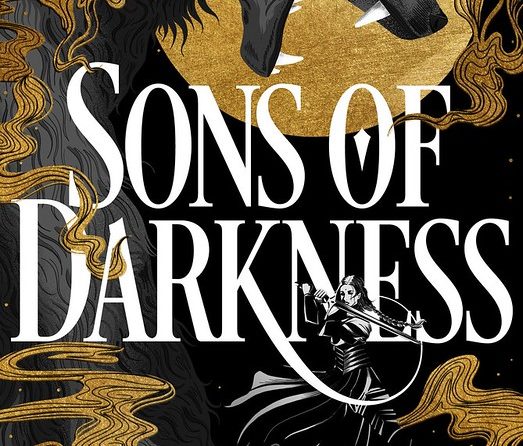








Okay I did mention it was fuzzy math. Statistical correction.
Since the first Hugo (for Best Novel) was awarded in 1953, 65 awards have been handed out to 42 different authors. That is to say 58% of the award winners are repeat offenders. Looking at this year’s candidates Lois McMaster Bujold and Kim Stanley Robinson have both won previous awards. Using my fuzzy, late-night, logic/math, I could say it is 58% likely one of them will win the award this year (2013).
RKT
David, thanks for the input. I was only looking at Hugo Awards for Best Novel. Isaac Asimov won 3 Hugos in the category.
1973 for The Gods Themselves
1983 for Foundation’s Edge
1946 for The Mule (Actually a Retro Hugo awarded in 1996, but I lumped them together.)
Sorry for the confusion.
RKT
Asimov’s 3rd Hugo was for a non-fiction autobiography, not a novel.